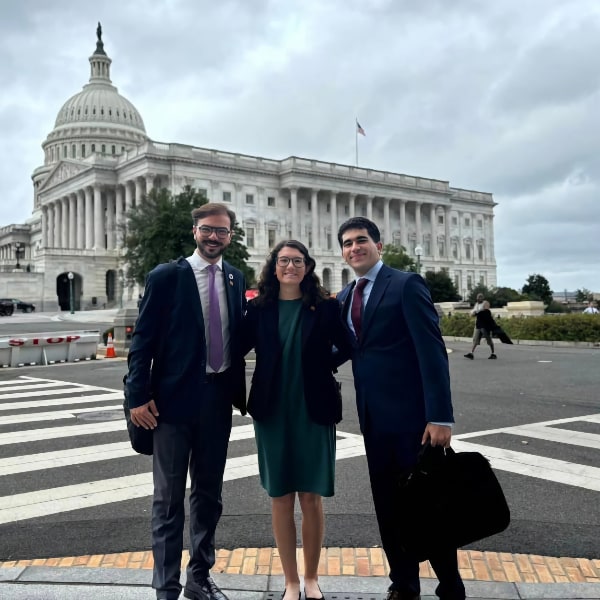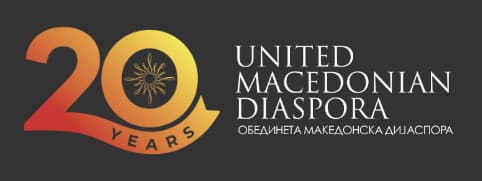On September 17-18, 2024, the United Macedonian Diaspora (UMD)s Global Policy Team held a series of productive meetings in Washington, D.C., engaging with Congress, the U.S. Department of State, the U.S. Agency for International Development (USAID), the Public Affairs Alliance of Iranian Americans (PAAIA), and the International Religious Freedom (IRF) Congressional Working Group to address key issues facing the Macedonian-American community and Macedonians worldwide.
The team included UMD Senior Global Policy and Advocacy Officer Emily Abramczyk, UMD Macedonia and Europe Director Gordan Jordanov, and Fall 2024 UMD International Policy and Diplomacy Fellow Moustafa Tahoun.
During the visit, Abramczyk, Jordanov, and Tahoun met with the offices of Senator Mike Braun (R-Indiana), Senator Laphonza Butler (D-California), Senator Mike Rounds (R-South Dakota), Senator Tim Scott (R-South Carolina), Senator Alex Padilla (D-California), and Senator Amy Klobuchar (D-Minnesota).
In the House of Representatives, they engaged with Macedonian Caucus Co-Chairs Congresswoman Lisa McClain (R-Michigan) and Congresswoman Claudia Tenney (R-New York), as well as Caucus member Congressman Matt Cartwright (D-Pennsylvania).
The team also met with the newly appointed Macedonia desk officers at the U.S. Department of State and USAID, as well as members from PAAIA and the IRF Congressional Working Group. UMD has been a strong proponent of the Temporary Family Visitation Act (TFVA), led by PAAIA, which will allow family members of U.S. citizens to visit the U.S. on a 90-day special visa.
A primary focus of the meetings was advocating for the official proclamation of September as Macedonian American Heritage Month, the establishment of a Double Taxation Treaty between the U.S. and Macedonia, and Macedonias inclusion in the Visa Waiver Program. UMD briefed Congressional offices and the Administration about the upcoming October 19th Thessaloniki (Solun) Human Rights Forum in Greece, while raising concerns over the ongoing institutional discrimination faced by Macedonian minorities in Bulgaria and Greece.

In addition, UMD emphasized the need to improve the quality of life in Macedonia through increased energy independence, enhanced cybersecurity, educational reforms, greater foreign direct investment (FDI), expanded anti-corruption measures, and comprehensive diaspora investment initiatives.
The two-day visit concluded with a Macedonian Networking Happy Hour hosted by UMD Board Member Filip Jotevski and UMD member Tamara Josifovic, with special attendance by Macedonian Ambassador Zoran Popov.
For the past twenty years, UMDs mission has always been to ensure Macedonians have a seat at the table. Historically, Macedonians have been on the menu. We must chart our future and keep our voice active professionally and persistently, said Jordanov.
I am extremely grateful to have the opportunity to advocate on behalf of Macedonia and the Macedonian diaspora through my work with UMD. These meetings are important for raising awareness of and finding ways to work towards solving issues prevalent to Macedonia and the diaspora community worldwide, said Abramczyk.
A video message from the team and photos can be found below:




